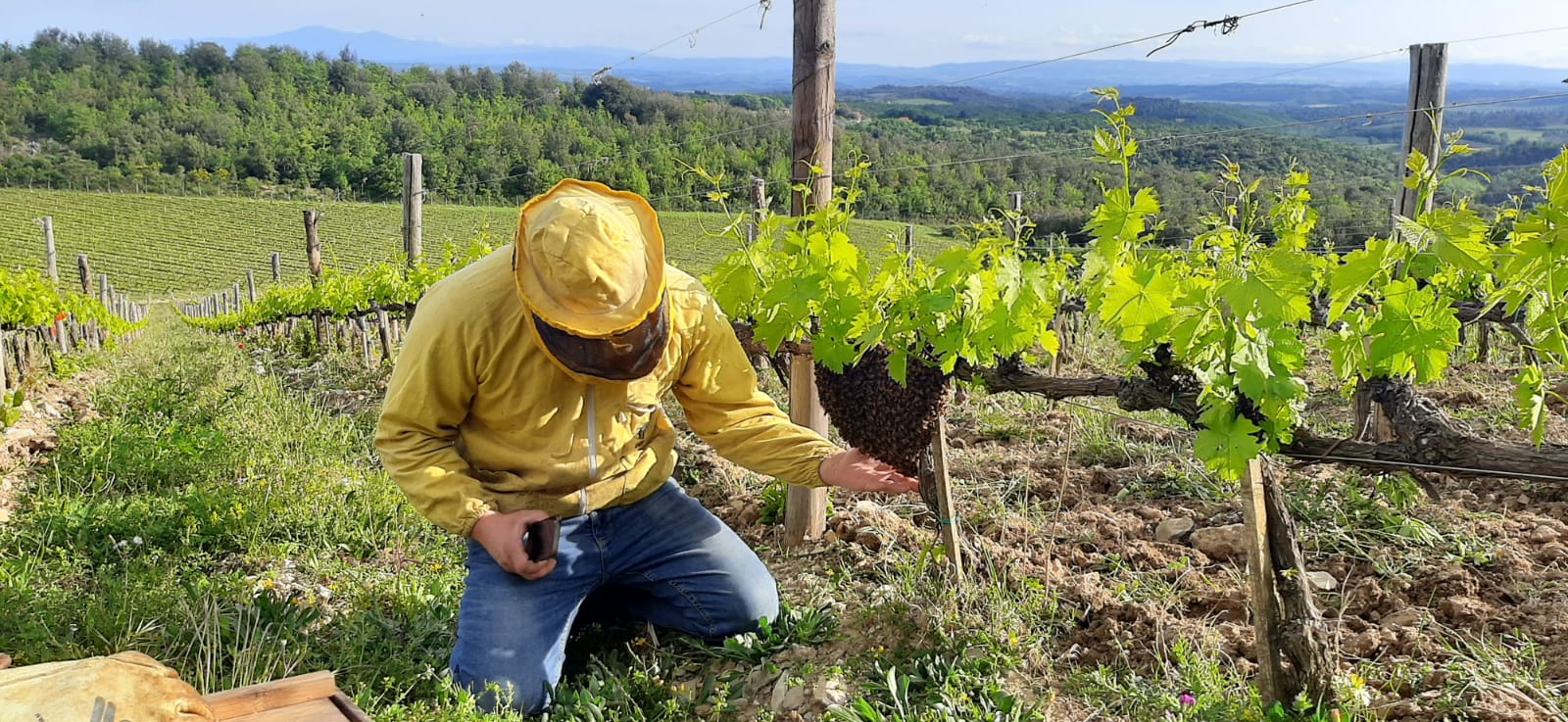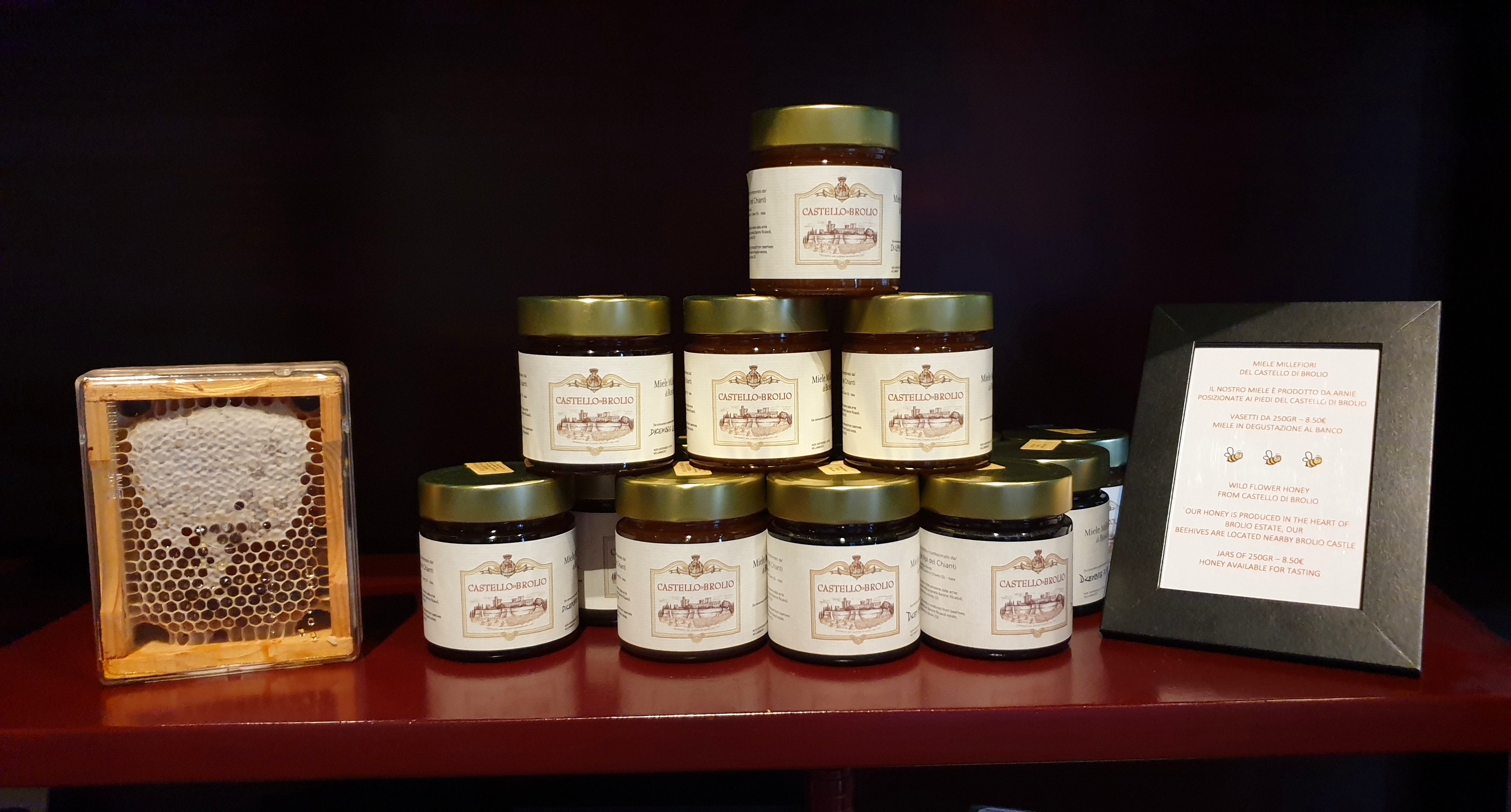

Bees: A vital presence in the Brolio vineyards
15 January, 2021The importance of bees for agriculture is incalculable. Viticulture is no exception, and the Ricasoli estate would not be the same without the industrious buzzing of these resourceful insects in the vineyards. In fact, bees contribute to biodiversity in a fundamental way by disseminating pollen among the plants, helping the plants produce seeds. Furthermore, since they are very sensitive to changes within an ecosystem, they are also true little “environmental sentinels”. Their presence in the vineyard becomes a tangible sign of the wholesomeness of the surrounding environment and the absence of chemicals.
For about three years now, Brolio has been home to an apiary: 15 families of the ligustica breed, a subspecies of Italian honey bee particularly in demand all over the world, because it can easily adapt to any type of climate, is resistant to diseases, is very docile and laborious and tends to produce a large quantity of honey. We asked Mirko Franchi, beekeeper in charge of our community of hard-working insects, for more information: “The bees settled in well at Brolio, their health also remained good and the starting group remained the same.”
What about the honey? The production of this exquisitely sweet liquid varies at Brolio from year to year depending on the climate. Every year some hives are moved around inside the estate to produce different varieties. “At Brolio nature offers different floral qualities,” Mirko continues. “The variety of honey mainly produced is woodland wildflower in the first part of the production season, from April to June, while in the second part, from June to September, it is woodland and chestnut wildflower.” Honey is also the perfect natural antibiotic, and no one should be without it in their daily diet, especially in winter.







